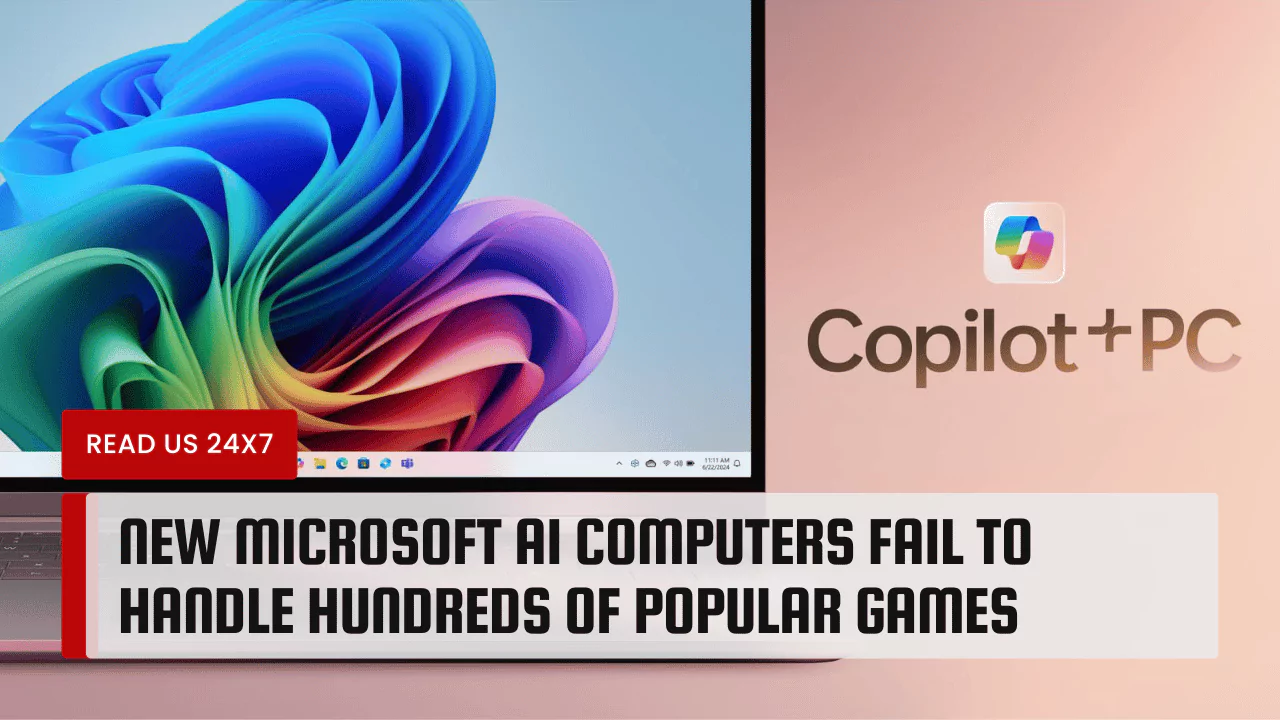Microsoft’s new AI computers, known as Copilot+ PCs, are having trouble running many popular video games. These computers use special chips called Arm-based Qualcomm Snapdragon chips. While they excel at tasks involving artificial intelligence, when it comes to gaming, they really struggle.
What’s the Problem?
The biggest issue comes from the difference between Arm architecture and x86 architecture. Most PC games were designed for x86 chips. Since the Copilot+ PCs use Arm chips, they face compatibility problems. Microsoft created a tool called Prism to help games designed for x86 run on Arm machines. Unfortunately, Prism has not worked well in many cases.
Testing the Games
An extensive test examined about 1,300 PC games. Results showed that only around half of them ran smoothly. Many popular games encountered bugs, glitches, or wouldn’t even start. These issues are frustrating for gamers who expect their computers to handle their favorite games.
Specific Game Issues
Some well-known titles faced serious problems. For example, games like Fortnite and League of Legends could not run due to their anti-cheating software. This software is crucial for online gameplay, so its failure leads to players being unable to join in. Other games such as Shadows of the Tomb Raider experienced continual crashes, which made them unplayable. Starfield, Destiny 2, and Halo Infinite also failed to launch entirely. Gamers who bought these systems expecting to enjoy these titles have been left disappointed.
Why Does This Matter?
Around 15% of laptop users are gamers. Many of those buyers might see Microsoft’s new computers as a solution for gaming and productivity. However, when users find their new machines do not perform well with games, they feel misled. Microsoft has traditionally been a leader in gaming, owning Xbox. Now, it seems that they have missed a big mark with gaming on their new PC lineup.
Reaction from Microsoft
Microsoft has acknowledged these issues. They stated that they want to ensure a quality gaming experience on their new devices. However, they suggest that players looking for high-quality gaming should consider different PCs. This has raised questions about whether the Copilot+ PCs are suitable for anyone interested in gaming.
The Importance of Compatibility
This situation emphasizes the importance of compatibility in gaming. Players expect their games to work regardless of the hardware they use. When new systems fail to run established games, it causes frustration. Miscommunication can lead to buyers feeling as though they wasted their money.
The Outlook for Copilot+ PCs
The Copilot+ PCs were designed with advanced AI functions in mind. They have features like all-day battery life and fast performance for non-gaming tasks. Yet when it comes to gaming, these advantages seem irrelevant if they cannot run popular titles.
Future Solutions
Microsoft is aware of these challenges and is working to improve the experience of using Copilot+ PCs. While the company has released Prism, their efforts to ensure a better gaming experience may take time. They need to find a way to fix compatibility issues for popular games, especially as gaming continues to grow in popularity.
User Expectations
Gamers expect their systems to play games, especially those from big developers. Microsoft’s failure to deliver the expected results can leave a lasting impact on trust among users. It emphasizes the need for devices that can handle various tasks without complications. Buyers may have second thoughts when considering future purchases if they feel their gaming needs were not respected.
Conclusion
In conclusion, Microsoft’s new Copilot+ PCs are currently falling short in the gaming world. They face significant challenges due to compatibility issues between Arm architecture and x86-designed games. With only about half of popular games running without problems, many users are disappointed. While Microsoft aims to fix these issues, gamers looking for a reliable system may need to look elsewhere for now. The future of gaming on these new devices remains uncertain, but the need for compatibility and performance is clear.


